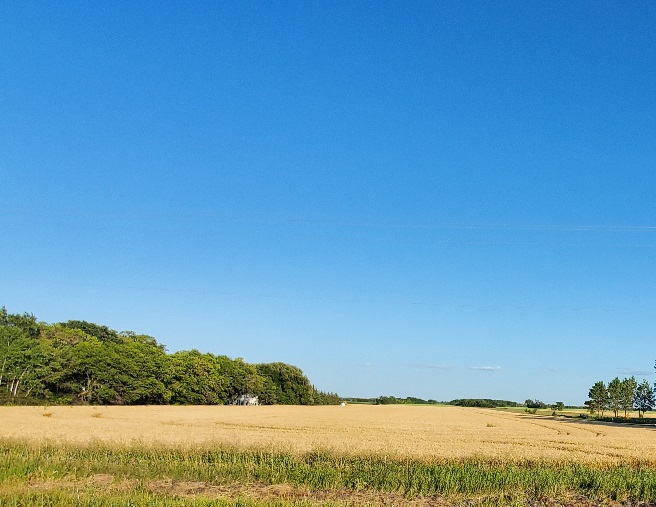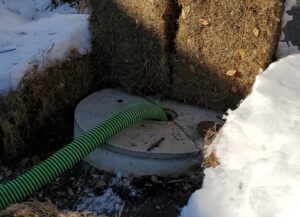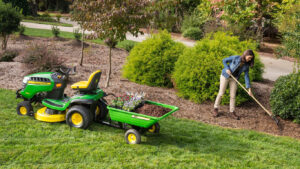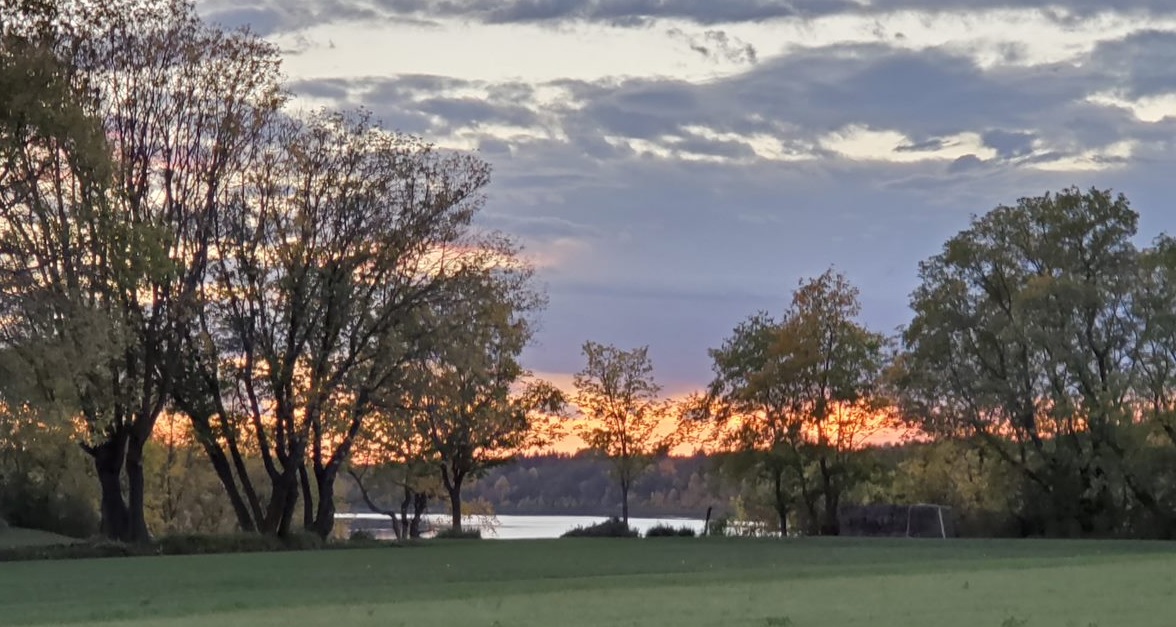5 Things to Know About Swapping Winnipeg for Country Living
In this article, get a heads up about some realities faced when relocating from the city to a rural property. Here are 5 things to know about swapping Winnipeg for country living.
You’ve been thinking about moving out of Winnipeg to enjoy the country life. Or maybe you’ve already taken the plunge and are building a home outside the city but haven’t moved yet. You have visions of escaping crazy traffic, photo radar, non-stop construction, high property taxes, and the stress of urban living.
It’s been a year since we moved to a home on the Red River north of Lockport after 40 years of living in southwest Winnipeg. This may well have been Timbuktu—I’d never even seen Skinner’s Restaurant nor crossed the Lockport Bridge. Ever.
So, what has year one of country living been like? We absolutely love the new rural life. But there have been some eyeopeners since we moved. Some expected. Some not so much.

Here are 5 things to know about swapping Winnipeg for country living.
1. Distances
Travel distance is a reality of rural living. Count on an increase in vehicle expenses—fuel costs, more wear & tear, and higher insurance premiums. Yes, MPI rates are higher outside Winnipeg. Distance will likely reduce eating out at restaurants. Take-out options will be limited or non-existent. And those season tickets to WSO, MTC, the Jets, and Bombers will need to be well-planned outings.
You may be looking for a new dentist, doctor, insurance broker, hair stylist, esthetician, and chiropractor. Some of your favourite retailers will no longer be easy access. De Luca’s is no longer a ten-minute drive for us. ☹
If you have kids, buy a chauffeur’s cap. Inevitably you’ll be driving a lot—sports, lessons, school. Make sure you invest in a good set of winter tires.
But not all is bad.
One daughter lives with us and works downtown. Her 33 km commute takes 35 minutes, most of which is stress-free driving down Henderson Hwy.
Depending on how far out you move, access to amenities isn’t all that bad. For us, the Regent shopping district is a 30-minute drive. Selkirk has great shopping options and is an 8-minute drive. Oh, and most of the distance is stress-free traffic.
2. Water & Sewage
Water and sewage might be one of the biggest surprises to anyone moving to the country. Living in Winnipeg, you are a user in a water and waste system managed and controlled by the city. In the country, you own and manage your own system. With that comes challenges you may have never encountered.
Sewage
Something common place on rural roads is the constant sightings of sewage trucks. Their job? To pump-out septic tanks that are either part of a septic field system or are the sole means of a property’s waste system. You will be dealing with one of these companies once you move. Either once or twice a year if you have a septic field. Or every couple of weeks like we do if you have a septic tank that holds all waste. At $120 a pop.
 Water
Water
Then there’s water. Winnipeg’s water source is Shoal Lake. Its slightly hard water is piped Winnipeg for treatment and distribution throughout the city. You may not like the smell and taste of its chlorine. Or the fact it contains added ingredients like fluoride. But City of Winnipeg water is always there when you turn on your tap or start your dishwasher. Consistent and problem-free. And it does minimal damage to your home’s plumbing system and appliances.
Living in the country and sourcing water is a completely different challenge. You need to drill a well or inherit an existing one. You’ll hope the pumping system is functional and lasts. But a power outage and guess what—no water.
The Enemy: Hard Water
Water quality is a challenge. Manitoba is known to have some of the hardest water on the planet. City of Winnipeg water typically tests at 3 – 4 grains per gallon (gpg) of hardness. Well water in rural Manitoba often tests at 40 gpg or higher. Our water is 56 gpg hard. If you think your city showerheads collect white gunk (called scale), wait until you see your rural shower.
Then there are other undesirable water characteristics often found in Manitoba well water. Iron content will stain plumbing fixtures and appliances. Your water can smell like rotten eggs. Manganese can pose health risks. And on occasion, bacteria can lurk in the well. None of these issues exist in the city.
Since you are the sole owner of your private water treatment plant, it’s up to you to deal with any issues arising from your well water quality. It will almost always call for a water softener. And it may require additional filtration for iron and other potential undesirable elements. The only way to know what you are up against is by testing your well water—one of the first things a new rural property owner should do.
3. Trash Collection
In the City, weekly garbage and recycling collection is taken for granted. That may not exist in your future Rural Municipality (RM). We’re fortunate the RM of St. Clements has a terrific collection program—and excellent transfer stations to boot. But not all RMs provide this service to its residents. That leaves it to you to haul your own to the dump or hire a service to do it for you. And in the country, you’re pretty much on your own for yard waste.
4. Yard Maintenance
A big plus moving to the country is wide open spaces. Rural lots are typically larger than urban yards. And with that comes more work. And often more investment.
Expect to spend more time cutting grass, raking leaves, gardening, and tending to food beds.
 You’ll likely be looking at added expenses. You may have a bunch of trees to plant, for aesthetics or for a wind break. That ain’t cheap. A riding mower or tractor is probably a necessity. Add to that a bigger trimmer and a chain saw. We bought a decent-sized yard trailer that has proved invaluable to hauling yard waste and picking up everything from lumber and building materials to landscaping supplies.
You’ll likely be looking at added expenses. You may have a bunch of trees to plant, for aesthetics or for a wind break. That ain’t cheap. A riding mower or tractor is probably a necessity. Add to that a bigger trimmer and a chain saw. We bought a decent-sized yard trailer that has proved invaluable to hauling yard waste and picking up everything from lumber and building materials to landscaping supplies.
And then there’s snow removal. We just finished installing a new 200’+ long driveway—guaranteed that isn’t something that’ll be shovelled. A snowblower or a blade attachment are pretty much a given for many rural properties.
5. Internet & Cable
You may be looking at a downgrade in internet speed and cable TV options—or a significant cost increase to acquire the equivalent city service quality.
My eldest daughter moved out to the RM of Richot south of the Perimeter on PR 200. They ended up investing in a 50’ tall tower for their dish to get internet service to satisfy their gaming obsession. Not a cheap investment.
We don’t have access to fiberoptic service up north on Henderson Hwy. We have excellent internet service—but our monthly cost is double what we paid Shaw in the City.
Technology is changing. Elon Musk’s Starlink is on the horizon. New companies are popping up to offer internet and TV packages. Just expect to pay more for what may be less.
Totally Worth It
How would the four of us rate our first year living in rural Manitoba? Totally worth it!
We live on a gorgeous property on the Red River. Beautiful views in all directions. Nature abounds. The peace and quiet and country air are refreshing and de-stressing.
 Sure, there’ve been challenges. We’ve adapted and embraced the changes. The inconveniences are far outweighed by the increase in our quality of living.
Sure, there’ve been challenges. We’ve adapted and embraced the changes. The inconveniences are far outweighed by the increase in our quality of living.
If you’ve ever had an itch to experience country living, time to scratch it. Chances are you’ll love it.
These our our 5 Things to Know About Swapping Winnipeg for Country Living. Have any of your own? We’d love to see your comments below.
